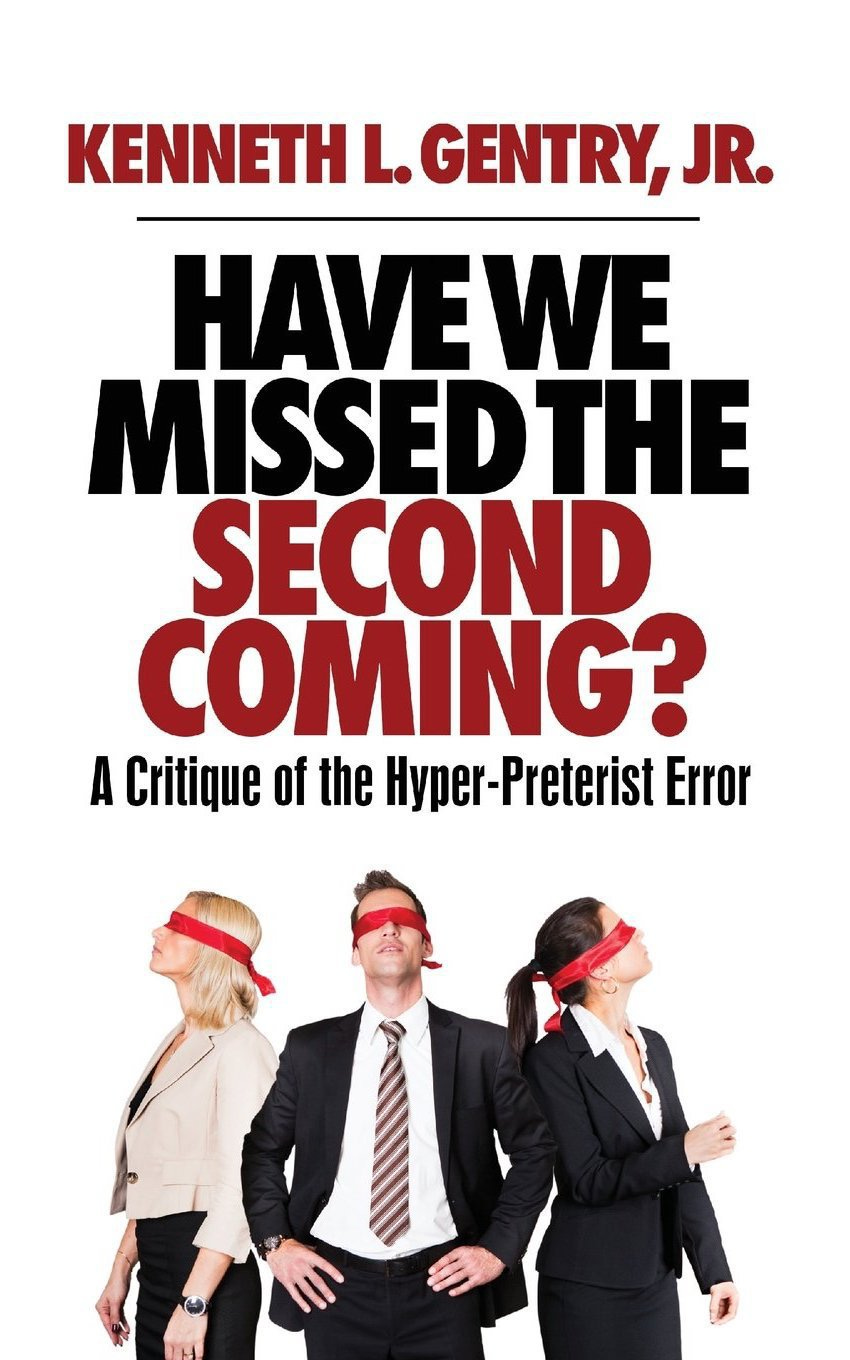A Letter on Postmillennial Preterism Versus Heretical Preterism
Heretical eschatology is theologically catastrophic
[slightly edited]
Dear ———-:
I’m sorry to hear the hyperpreterist heresy has reared its ugly head in your fine congregation, but this is sadly not a surprise in our theologically and hermeneutically chaotic age. Though many of its adherents are sincere, it is a dangerous, soul-damning heresy. It’s understandable that Christians who have been exposed almost exclusively to dispensationalism and are (creditably) abandoning it would gravitate toward it as the silver bullet, since its answer is to lop off “last days madness” with one fell swoop.
Unfortunately, it also lops off Christianity.
Below I’ll mention some resources and links that would be a great help, but just here I’ll point out that a preterist postmillennialism often sees the transition from history to eternity in Rev. 21. The “millennium” in chapter 20 emerges as we move through the present interadvental age. The Christ-captained warfare of chapter 19 is pressing toward victory in the present gospel era. In particular, I believe it refers to its inception with the vanquishing of the Roman Empire and the subsequent future Christianization of the world we see in ch. 20. Other postmill preterists like Dr. Ken Gentry (note below) believe almost the entire book until ch. 21 refers to the destruction of old covenant Judaism in the A.D. 70 Roman decimation of Jerusalem. Either view is compatible with the orthodox preterist (OP) viewpoint.
All OP’s believe that at least some of Matthew 24 refers to the destruction of Jerusalem. I hold Marcellus Kik’s view that the second half (v. 36f.) refers to the final Advent. The whole feeling and picture of v. 36f. in its vagueness as to timing is entirely different from the urgency of vv. 3–35.
There are numerous insuperable problems with the hyperpreterists’ viewpoint. From an exegetical standpoint, they seem not to understand that identical language can be used for more than one event. A good example is the new heavens and new earth in Rev. 21:1 (other examples are "the Lord’s Day," “resurrection," and God’s "coming [parousia]"). Because this language refers at times to the preconsummate gospel era, they assume that it cannot refer to the eternal state. This is just bad exegesis and theology. The entire structure of the New Testament includes the “already/not yet.” Heretical preterists see everything as already. This represents a catastrophic misunderstanding of Pauline thought in particular.
Because we OP’s point to the great Christian creeds as forbidding the hyperpreterist heresy, they claim we are creedalists and they are biblicists. This is just plain ignorance, and probably disingenuousness. There’s plenty of sound biblical exegesis for the orthodox viewpoint. Unlike them, however, we don’t believe we are the only ones that ever exegeted the Bible. There’s so much more than can be said.
I’d start with Ken Gentry’s Have We Missed the Second Coming?: A Critique of the Hyper-preterist Error. No one has more thoroughly and cogently refuted the hyperpreterist heresy, or, for that matter, articulated orthodox preterism.
Though I haven’t had the chance to read it yet, Sam Frost’s book Why I Left Full Preterism is highly regarded.
I address some of the botched exegesis of the hyperpreterist heresy in “Creedal Eschatology Is Biblical Eschatology.”
I’m praying just now that the Lord shows these young men the error of this heresy and that they won’t be seduced by it.
May God continue to rain down his blessings on you and your ministry. I’m eager to meet you.
Much respect, in Him,
P. Andrew Sandlin, S.T.D.
Founder and President
Will you consider a tax-deductible donation to CCL via PayPal or Venmo? Or mail a check to CCL, Box 100, Coulterville, CA 95311. God uses you to keep us going — and expanding.
I'm sometimes asked the best place in the Bible to start for proving postmillennialism. I reply, “Genesis 1:1.” An optimistic eschatology rests in an optimistic protology. The sovereign Creator fashioned a very good creation that will fulfill his kingdom-expanding dominion purposes in time and history.
This primer shows what an optimistic eschatology looks like.
Get hard copy and e-books here. Contact me privately (sandlin[at]saber[dot]net) for quantity pricing (10+ copies).
More great stuff:
The Center for Cultural Leadership site is here.
My Amazon author page (print and digital) is here.
My I-Tunes sermons, lectures and podcasts are here.
You can find my sermons and lectures at my YouTube channel.
Sign up to get my blog updates here.
Here’s my Twitter feed.
If you want to get the free exclusive hard copy publication Christian Culture, please send me a Facebook private message.
The CCL phone number is 831-420-7230.
The mailing address is:
Center for Cultural Leadership
P. O. Box 100
Coulterville, CA 95311






I don’t see how being a “creedalist” is in any way damning, disqualifying, or diminishing. There’s the what the Bible says and what we say it says. The creed is simply what we say the Bible says. It provides an interpretive lens. Irenaeus’s argument against the gnostics in Against Heresies was that they can cite scripture to back their points as easily as anyone. Indeed, the devil is a fine “biblicist” when he wants to be. What neither the gnostics nor the devil can do is square their use of the scripture with the rule of faith.
Since I first heard his arguments against total fulfillment, Sandelin has always demonstrated a shallow capacity for understanding scripture, espousing creeds rather than Christ. Very sad to see him continuing this path.